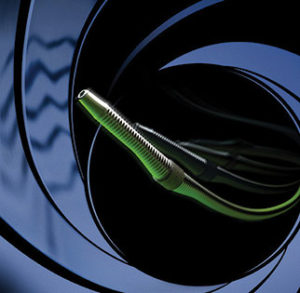
At the 2016 Transcatheter Cardiovascular Therapeutics (TCT) meeting (29 October–2 November, Washington, DC, USA), Cardiovascular Systems debuted the design of its new ECLIPSE clinical trial. The trial will compare the company’s Diamondback 360 coronary orbital atherectomy system with conventional angioplasty, including specialty balloons, for vessel preparation prior to drug-eluting stent implantation.
ECLIPSE will be a prospective, multicentre, randomised clinical trial of up to 2,000 patients performed in up to 60 sites in the USA. Half the participants will receive orbital atherectomy prior to drug-eluting stent implantation, while the other half will receive conventional angioplasty, including specialty balloons, followed by drug-eluting implantation. The trial will be powered to demonstrate differences in the primary endpoints of post-procedural minimal cross-sectional area (assessed by intravascular imaging in a subset of up to 400 patients) as well as in the clinical outcome of target vessel failure at one year. The trial is expected to begin recruiting in spring 2017.
ECLIPSE co-principal investigator Philippe Généreux (Morristown Medical Center, USA, and director of the Angiographic Core Laboratory at the CRF Clinical Trials Center) presented the rationale for the study and trial design at TCT. He said: “Coronary calcification has been shown to increase procedural complexity and adverse events following conventional percutaneous coronary intervention (PCI). Using a less invasive procedure, orbital atherectomy has the ability to significantly modify lesion morphology, enabling successful stent delivery to help optimize stent expansion and apposition. This valuable trial will inform physicians regarding the most effective treatment protocols and strategies for treating patients with calcific coronary artery disease, ultimately improving PCI outcomes.”
“The ECLIPSE trial reflects the growing complexity of coronary artery disease seen in the modern-day cardiac catheterisation laboratory, and will be the largest randomised clinical trial to date to assess the use of adjunctive coronary atherectomy for calcific coronary artery disease,” commented co-principal investigator Ajay Kirtane (director of the Cardiac Catheterization Laboratories, NewYork-Presbyterian/Columbia University Irving Medical Center, New York, USA).
A press release reports that CSI’s Diamondback 360 coronary orbital atherectomy system is the first and only atherectomy device approved to specifically treat severely calcified coronary arteries. Since FDA approval in 2013, more than 20,000 devices have been used to treat patients with coronary artery disease.









